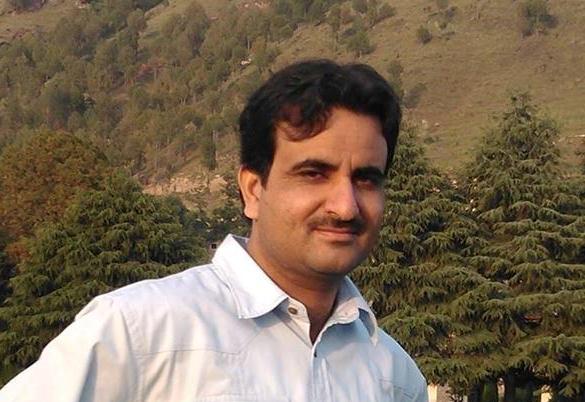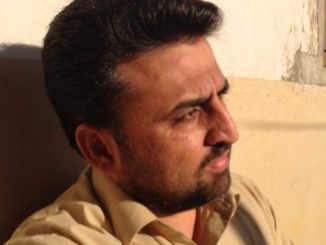
Education under 18th Amendment
by, Dr.Nasir Hussain Bukhari
Pakistan inherited the legacy of the British education system at the time of its creation in 1947. The first National Education Conference held in November- December 1947 presented a blueprint of the education system of Pakistan. The message of the Quaid-i-Azam and first Federal Minister dealing with education elaborated the guidelines of the educational system to be established for the citizens of Pakistan. The guidelines clearly explained that education would be free for all, emphasis on technical and vocational education as well as balance in science and social sciences.
The Education Commission of 1959, National Education Policy 1970 (known as Noor Khan Policy) recommended for “ Sipah-i-Danish”, the Army of the Wise /teachers on the pattern of Iran, a separate department with ample financial resources and proper training to enhance the literacy rate in Pakistan. However, these educational policies encouraged establishment of private educational institutions to expand the educational infrastructure.
The policy of public and private educational institutions gradually created a serious issue of inequality in education. Inequality in education means the divide of the social classes of a nation. The divided mindsets always stem out from this division. From 1947 to 1972, no government paid heed to the divide and inequality spreading in the nation.
The National Education Policy 1972 presented the notion of a uniform system of education to provide access to all groups of the society and to eradicate the division of social fabric because of education institutions for the rich and poor. This policy of nationalisation was a pleasant change for the poor who then had equal access to education with equal opportunities of studies.
This policy of nationalisation was reversed in the National Education Policy 1979 by the Zia military regime. Zia also announced the denationalisation.
It again started the vice of privatisation of education in Pakistan. In 1990, the government of Nawaz Sharif allowed setting up private universities and colleges. Since then Pakistan has observed the growth of private universities and educational institutions like mushrooms. This policy of privatisation of education has entirely undermined the article 25 of 1973 constitution that provides for the free education to all Pakistanis.
The policy of privatisation of education has caused the following national issues. First, there are four different streams of educational institutions including public sector schools (with substandard facilities, lack of quality education and meant for lower middle strata of the society), second, the district public schools, cadet colleges, educational institutions established by the ministries and defence organisations are meant for upper middle class and offspring of the bureaucracy and military personals); third, the elite schools like Beacon House, City Schools, etc are considered the role model for the very rich class of the society; fourth, the madaras, the seminaries of Pakistan are deemed as hatcheries of orthodoxy where poor send their children and they get only religious education, so the output of the students of madras is nothing except becoming religious teachers are qaris.
Among these four different kinds of schools, the first three categories are following different curricula up to grade 8. According to theorists and educationists, the most important age of learning that prepares the mindset of the children for future education is producing different classes of citizens. As concerned the madaras, the curriculum which is being taught there does not meet the needs of the society in modern age.
The 18th amendment has made education a complete provincial subject and has shifted the responsibility of promotion of quality education with equal opportunities to all. However, there seems no change in the prevailing scenario. The private schools are charging very high fees on the pretext of so-called quality education, this “quality of education” is basically “inequality of education” for the destruction of social fabric and national unity.
Another issue of privatisation of education is the ignorance of investors, who invest in education only considering it a profit-oriented business. The investors are entirely business minded who ignore the fact that education is a public good.
The continually rising fees of schools, colleges and universities have made education a privilege for the rich, second the private universities have adopted the status of job guarantors in Pakistan. This situation has created a very serious issue of low ranking of public sector universities as well as increasing the loss of trust on national educational institutions.
The private educational institutions particularly schools are busy in exploiting the highly educated youth by hiring their services with low salary on three months contracts , even in the educational institutions established by the miniseries or their foundation, the exploitation of teachers is at its peak.
The federal government of Pakistan had established some teachers training institutes for the training of teachers; however, they are insufficient to meet the increasing demands of the trained teachers. There does not exist any teacher certification authority in Pakistan since to take test for the grant of certification which is essential in all developed countries for opting the profession of teacher. This is the main reason for untrained and mismatched educational personnel in Pakistan.
The facilities in the public and private schools are also very unsatisfactory because of lack of funding. It is indeed an issue due to structural adjustment program of International Monetary Fund (IMF) and its demand for cuts in budget of education and health services. This Brazilian entrap of IMF is mainly responsible for the destruction of our national education system.
What provincial governments do for the uplift of education?
This historical and need based analysis exposes the fact that the 18th amendment has entirely empowered the provincial governments to work for the development of all levels of education from primary to higher. This a blessing in disguise for the provincial government for doing exceptional for uplift of education. I would suggest the following measures for the development of education in Pakistan to provincial governments.
1-The provincial governments ought to nationalize all the private educational institutions including schools, colleges, universities and madaras.
2- A teachers Registration Authority must be set up in every province and ICT for the certification of teachers. Only certified teachers of Provincial /ICT Teachers Registration Authority should be recruited as teachers. This is a standard practice in all developed countries because teacher’s intellectual, affective, and psychomotor domains must be tested whether he/she is able to teach.
3- The salaries and medical facilities for the teachers should be equal to all public servants. The government must establish residences of the teachers in every educational institution from primary to university. The provision of accommodations, medical facilities and better salaries will attract the intelligent youth to become teachers and such provisions will increase the credibility of the teaching profession.
4- All madaras irrespective of their affiliations with Sunni or Shia’s wafaqul Madaras must be nationalised and declare higher secondary schools. Same national curriculum which is being taught in government schools must be enforced in these madaras. The religious teachers should be trained for teaching. Religious education in Madras education must commence after passing HSSC from any Board of Intermediate and Secondary Education. If the admission for opting medical, or engineering, law profession, the HSSC/A Level is compulsory, then it must be equally and strictly implemented in madaras also to opt for the profession of an Alim-e-Din. The education of young children in madaras must be banned. The children should be imparted the hifz-e-Quran in schools.
5- Uniform curriculum for all institutions including madaras is essential for creating equality and patriotic Pakistani citizens. The provincial governments must present their analysis of need based curriculum to the federal government for creating a consensus. Curriculum should be revised after every five years and able to develop critical thinking among students. Ethics should be introduced as a compulsory subject in from class 5-10. While Urdu, English, Pakistan Studies and Islamayat must be eliminated at HSSC level and more options for science and social sciences subject should be provided to broaden the vision of the students.
6- Education for all and free for all up to HSSC.
7- Technical and vocational education subject according to the needs of area must be incorporated in the curriculum to provide some skill to all students.
8- Rote based examination system must be replaced with critical thinking and problem-solving approach-based system.
9- The females constitute the 51% of the total population of Pakistan, the provincial education department must ensure them access to education.
10- The tuition academies must be strictly banned for ever in all Pakistan, their campuses must be converted into schools according to their infrastructure and accommodating students capacity without any compensation.
11- The provincial assemblies must legislate in a manner that courts could not grant any relief to private owners as they have already looted nation. If provincial government deems that court will undo the measures then go for 75% share of the government and 25% for ex owner.
How to provide funding?
1- The educational institutions from primary to university level must launch two shifts. These two shifts are already being practised successfully in public schools in Islamabad. It may meet the needs of the students, enhance the financial resources for the institutions and teachers. As far as concerned the universities the provincial and federal government must increase the budget. The universities must adopt entrepreneurial approach and university-industry collaboration along with utilizing their physical infrastructure and assets for income.
2- The provincial government must levy educational tax after nationalisation of all the educational institutions to meet the financial budget of the education department.
Conclusion
The 18th amendment and constitution of Pakistan’s article 25 provides for free education. The transfer of subject of education to provinces has shifted the responsibility of uplift of education and its access to all to provincial government. It is imperative to suggest that the minister of education must be an educationist having relevant experience and be able to chalk out plans for the uplift of education.
The governments must involve the parent’s association to seek their cooperation for nationalisation of education, as well as to enhance the performance of the teachers and students through the feedback of the parents’ association. In the nutshell, the education system of Pakistan cannot be developed and make able to meet the needs of the nation without nationalisation.
I am afraid if unscrupulous privatisation of education continues, God forbid, we cannot face the national fragmentation among society because of show off wealth and sectarianism. The youth has already frustrated, so the politicians and particularly the Chairman Bilawal Bhutto must take the bold initiative of nationalisation of education in Sindh and make it a part of his party manifesto for 2023 general elections if he really believes in the philosophy of Shaheed Zulfiqar Ali Bhutto.
I sum up that the social and financial benefits of teachers should be equal to the armed forces and bureaucracy. Teachers also perform the prime national duty. If teachers are given socioeconomic credibility under 18th amendment, Pakistan will be standing among the top nations of the world. COVID 19 has proven that the private educational institutions are only business firms not knowledge repository.




